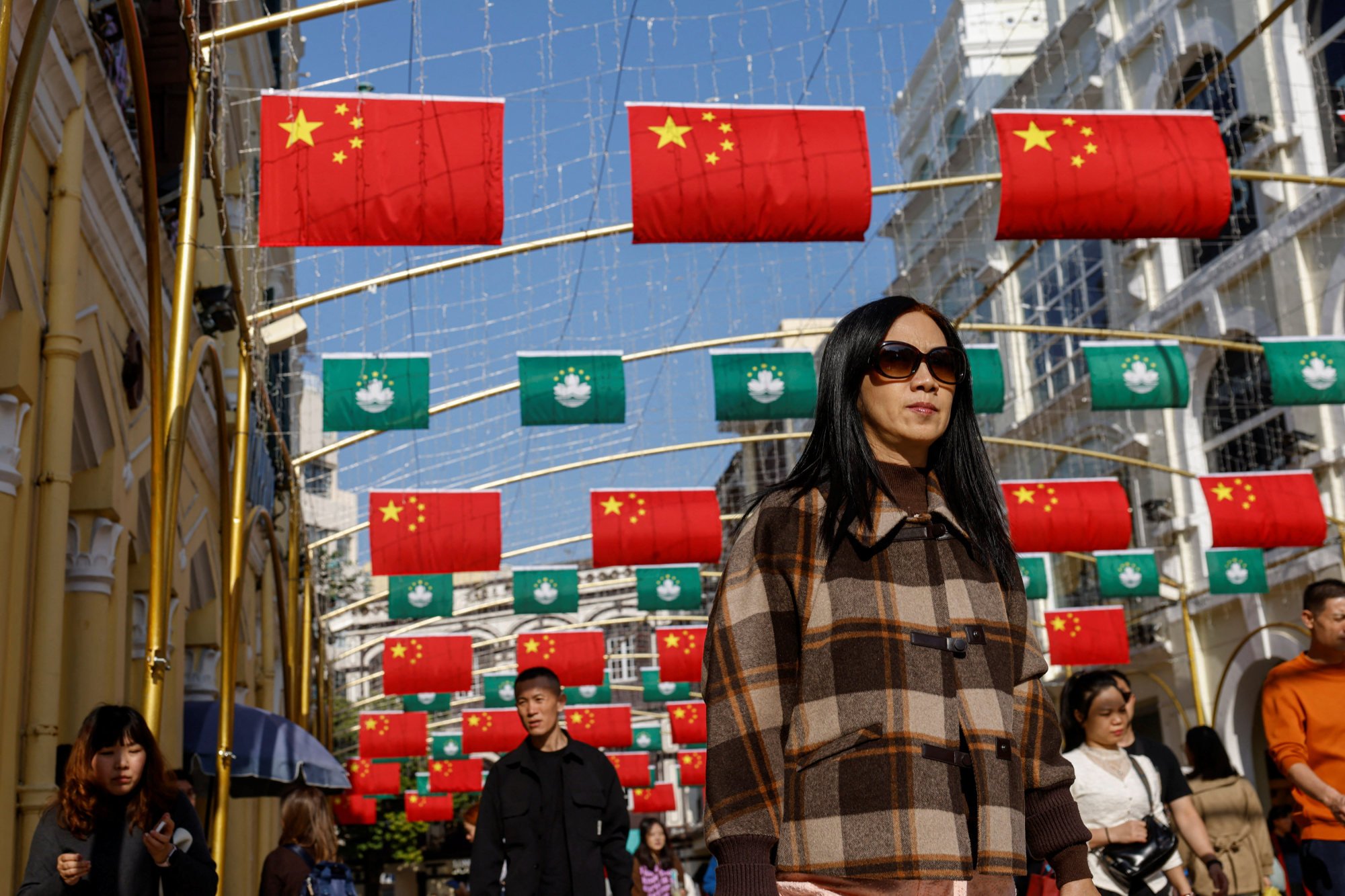Leo Zhou, a first-year student at the University of Macau, is clear about where he sees himself working in the future: mainland China.
“Macau has a strong focus on tourism and casinos, the demand and job offerings for engineers are very limited,” said the 19-year-old student from Macau, who is pursuing a degree in electrical and computer engineering.
He added he believed only one large telecommunication company could offer promising prospects for engineers.
Do you have questions about the biggest topics and trends from around the world? Get the answers with SCMP Knowledge, our new platform of curated content with explainers, FAQs, analyses and infographics brought to you by our award-winning team.
“If the government takes concrete steps to nurture other industries such as finance, just like Hong Kong, I would be happy to stay here for my career,” the student said.
Zhou was among the young Macau residents who spoke to the Post and expressed dissatisfaction with their limited career choices despite the city’s drive to diversify its economy and reduce its long-standing dependence on the gaming sector.
Observers also warned an aggressive push to attract concerts and conferences, as part of the diversification efforts, would encourage young people to take up high-earning freelance jobs instead of investing in upgrading their skill sets.
These commentators urged the Macau government to instead develop a more robust qualification framework to train and nurture young professionals.
Macau marks the 25th anniversary of its return to Chinese administration on Friday, with President Xi Jinping in the city to officiate the swearing-in of former top judge Sam Hou-fai as the next leader. Sam has pledged to continue efforts to diversify the economy.
The incumbent chief executive, Ho Iat-seng, introduced the “1+4” strategy last year to put tourism at the city’s core, while nurturing four sectors: a “big health” industry; modern financial services; technology; and conventions, exhibitions, trade, culture and sports.
But Davies Leong, a 24-year-old PhD student in neuroscience at the University of Macau, said the room for professional growth in his field was “very limited” despite the government push.
“It’s never about what I want to do, but rather the choices I have,” he said.
Leong said most graduates in his discipline wanted to join the pharmaceutical industry, but the drug research and development process is mostly carried out on the mainland or overseas.

“We usually perform ‘copy and paste’ work which does not require professional knowledge at all,” he said.
“The capacity of people cannot catch up with the market demand ... even if we are to develop big health, I guess we still need to depend on the mainland a lot.”
Macau’s unemployment rate is below 2 per cent. But the rate for those aged 16 to 24 reached 7.3 per cent in the third quarter, up from 4.5 per cent in the previous quarter and the highest among all groups.
More than 71,000 people, or a fifth of the about 380,000-strong working population, are employed in the gaming sector according to an official employment survey for the third quarter. This is the largest share among industries.
These residents made a median monthly income of 21,000 patacas (US$2,620), while those in the general workforce earned 18,000 patacas.
The highest-paying industry was public administration and social security, with median monthly earnings of 53,600 patacas, followed by education at 28,500 patacas. But only 31,000 and 23,000 people were employed in these sectors, respectively.
Jacinta Ho, president of the Macau Greater Bay Area Human Resources Association, said the government should be aware of how the emerging concert and conference industries could affect the career development of young people.
“In recent years they have created a high demand for casual workers, such as ushers and backstage management, those jobs attract a lot of young people because the hourly pay is better than a full-time job and the hours are flexible, ” she said.
Ho said stakeholders of new industries should put more effort into persuading young people to build their skills for more promising careers. She added stakeholders could share with them the kind of talents they were looking for and how many vacancies would be available so that careers could be planned ahead.
She also called on the government to have a more scientific and strategic forecast of manpower for young people to “see hope in where they are heading”.
Lawmaker Ron Lam U-tou echoed these sentiments, noting that Macau’s economy still largely relied on gaming and lacked a mature qualification framework. The recent economic had made it even more challenging for young people to find their place in the workforce and grow.
He observed that many pinned their hopes on joining the civil service, which was stable and offered a good salary, while some would join the gaming sector for the same reasons.
Lam said the lack of a clear career path or framework for young people was a major obstacle authorities needed to clear to truly help nurture talent and diversify the economy.
“Nurturing talent takes a least a decade, even if young people are willing to follow the government’s directions and receive relevant training, can you ensure that after a few years, their professions will continue to be valued?” he said.
“It’s important to ensure that the best jobs are reserved for Macanese. What’s the point of importing foreign talent when you have not made good use of the local ones?”
More from South China Morning Post:
- Macau ‘gradually unleashing deep potential’ in push for better future: Xi
- 25 years after returning to China, is diversification working for Macau?
- Hong Kong’s John Lee to lead delegation to Macau for anniversary celebrations
For the latest news from the South China Morning Post download our mobile app. Copyright 2024.





